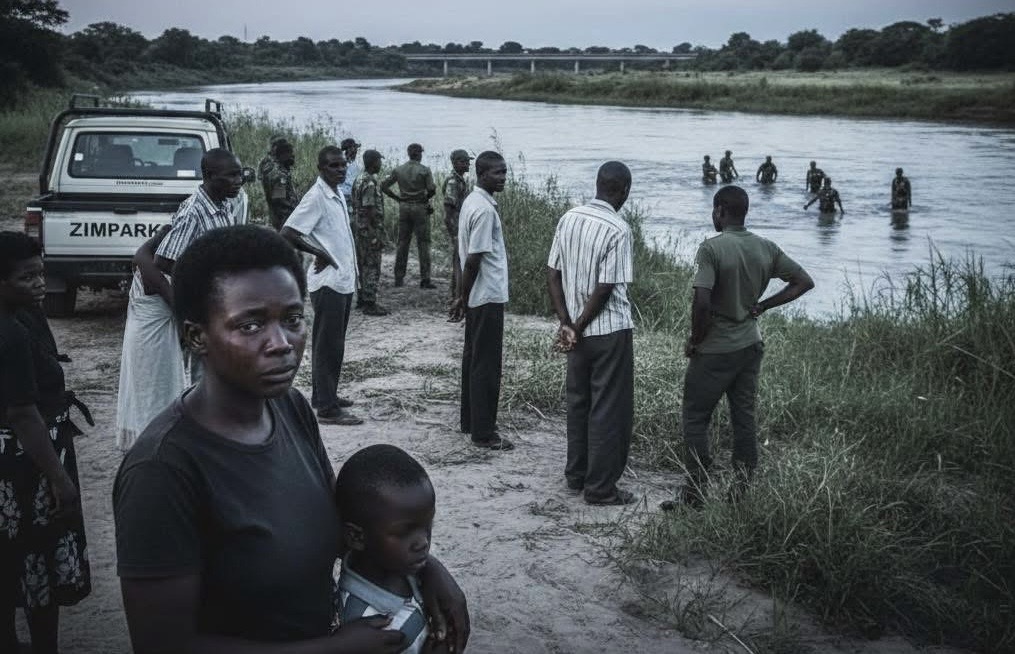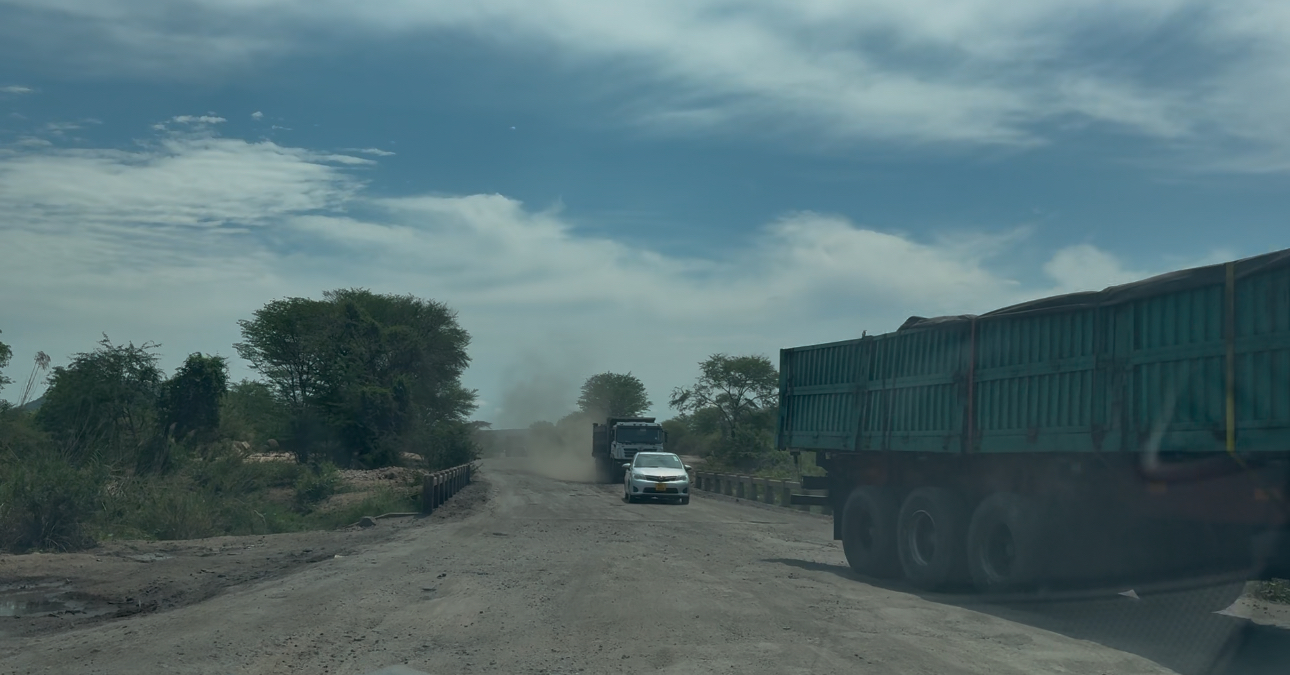BY MARKO PHIRI
When Zimbabwe’s government started running a bus system earlier this year with fares on average one-third lower than those of private bus companies, Thandekile Gama was excited.
The 33-year-old hairdresser had grown tired of paying up to $3 (less than 10 U.S. cents) every time she took a trip within Bulawayo, the country’s second-largest city, so the new bus system with fares capped at 50 cents seemed like a gift.
But that gift came at a cost: Gama said the more affordable fares have led to overcrowding on the government-owned buses, putting her and other women she knows at greater risk of sexual harassment and assault as they travel.
“The buses are crowded, as would be expected, but there are creeps who ride the buses to fondle women,” she told the Thomson Reuters Foundation. “You just feel a hand feeling you up and then disappearing.”
Reports of harassment and rape on public transportation are on the rise, said Auxillia Sibanda, an assistant inspector with the Zimbabwe Republic Police (ZRP), at a public meeting in July.
She did not provide specific numbers, noting that the statistics were still being compiled.
World Bank figures show about one-third of Zimbabwe’s 16 million people live in urban areas, and that its urban population is growing about two percent annually.
Across the country, rapid population growth has led to increased demand for public utilities, including transport, according to legislator and women’s rights defender Tabitha Khumalo.
But authorities did not anticipate the impact of that demand on the safety of female commuters using public transportation such as private and state-run buses as well as unlicensed “pirate” taxis, she said.
The government re-launched the Zimbabwe United Passenger Company (Zupco) buses in January, several years after the state-owned company’s fleet was grounded following a litany of problems that included millions of dollars of debt and allegations of government corruption.
At the time of the re-launch, information minister Monica Mutsvangwa said Zupco was part of the modernisation of the national transport system and assured the nation that there would be “adequate security” to protect passengers.
Zupco’s acting CEO Everisto Madangwa said in a phone interview that those security measures include assigning at least one police officer to each bus, “to ensure passenger comfort and safety”.
Madangwa declined to directly respond to the accusations of sexual harassment on the company’s buses, but said the government regularly adds to the fleet to both meet demand and decrease congestion on the buses.
He added that the company plans to grow from the current 500 buses to 3,000 countrywide, without specifying a timeline for the target.
FINANCIAL RESPITE
Madangwa could not provide figures for how many passengers use the Zupco buses daily, but noted that the bus system has been popular from the first day it started running.
Gama and other passengers say much of that popularity stems from the low fares, which provide some financial respite for a population struggling through crippling inflation and shortages of bread, fuel and hard currency. (L8N24G1OY)
Female passengers have long been subjected to whistles, crude comments and groping on buses, Gama explained, but with so many people using the Zupco system, the harassment has become more aggressive and invasive.
“The sexual harassment has become too much, but (these) buses are the cheapest,” she told Thomson Reuters Foundation as she stood in a long queue to board a Zupco bus.
“We just have to brave it.”
A 2018 Thomson Reuters Foundation survey of 1,000 women in five of the world’s biggest commuter cities – London, New York, Mexico City, Tokyo and Cairo – found 52 percent cited safety as their top concern while using transport.
For Khumalo, the problem of women’s safety on Zimbabwean cities’ public transport systems is a “recent phenomenon, seen after the entry of government buses and proliferation of pirate taxis”.
She and a group of other female legislators have lobbied the government to set up a database of sex offenders “as many of these perpetrators are repeat offenders”.
In general, said Khumalo – who also serves as the national chair of the opposition Movement for Democratic Change – the government could do more to protect and support survivors of sexual violence.
Figures released in 2018 by the Musasa Project, a women’s rights group, revealed that up to 50% of rape cases in Zimbabwe go unprosecuted.
Lawmakers are currently drafting a bill that proposes a mandatory minimum of 60 years for the rape of anyone under the age of 12.
FEAR OF REPORTING
Bulawayo police spokesman Abednico Ncube told the Thomson Reuters Foundation that police were doing everything they could to ensure women’s safety on public transportation.
But the congestion means officers “cannot monitor each and every passenger”, he added.
Ncube advised anyone who experiences sexual harassment while riding on a bus to report the incident immediately after it happens.
“It is important for victims of indecent assault to attract the attention of witnesses as soon as they feel violated so that police can effect arrests,” he said.
But there is a problem with that advice, said Gillian Chinzete, project director at the Institute for Young Women’s Development, which supports women’s participation in political processes.
Women in Zimbabwe are often reluctant to report harassment for fear of not being taken seriously, she said.
“There must be training of the police on how to deal with cases of public violence against women … as a way of instilling confidence in the victims,” said Chinzete.
Gama, the hairdresser in Bulawayo, agreed, saying that she and other women she knows have learned to live with being groped on the bus.
Because to go to the police, she said, is to risk being ridiculed for reporting a “petty crime with no known perpetrator”.
“It’s difficult as it is to report rape,” she said.
“Imagine trying to report being fondled by a hand you did not see.” – Thomson Reuters Foundation

 Slider3 years ago
Slider3 years ago
 National4 years ago
National4 years ago
 Tourism and Environment4 years ago
Tourism and Environment4 years ago
 Special reports4 years ago
Special reports4 years ago
 Opinion4 years ago
Opinion4 years ago
 National4 years ago
National4 years ago
 National3 years ago
National3 years ago
 National3 years ago
National3 years ago


